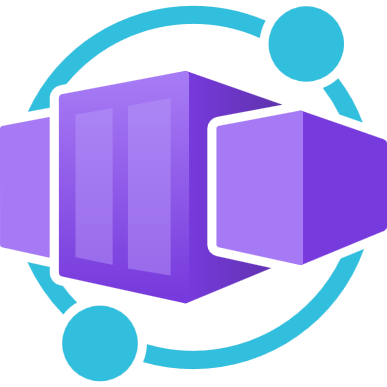Logging configuration with JBoss EAP and Spring Boot
This post will cover some logging configuration that can be done with Spring Boot, packaged as a WAR file, deployed to a JBoss EAP instance on App Service Linux.
Overview
If deploying a Spring Boot application, packaged as a WAR, to a JBoss EAP instance - you may notice that Spring specific output may not show. By default, we’ll see stdout and stderr from JBoss.
We’ll cover some different methods below to configure logging to change this.
Log File locations
NOTE: Consider sending logs to Azure Monitor (Log Analytics workspace based) for a better approach at persisting logs, which also makes it much more searchable, as opposed to file system logs like in this blog. You can also send logs externally to log retention providers of your choice.
As with all “Blessed” Images, stdout and stderr is redirected to default_docker.log. This includes typically the Web Server logging (in this case, Jboss and Undertow) - plus, application logging.
If absolutely needed, logging directory locations can be changed for certain files. In the current JBoss Blessed Image, there are a few files that are created for JBoss, GC, and the application. Some of this is redirected to default_docker.log already - and should generally suffice, however, some other files live under /tmp/LogFiles. The files under /tmp/LogFiles are:
gc.log- Logs for Garbage Collectionaudit.logserver.log- Logs for JBoss specific activity (the content here is redirected todefault_docker.log)Application/server.[host].log- Logs for JBoss specific activity and application stdout/err (the content here is redirected to default_docker.log)http/RawLogs/site_access_log.[host].txt- HTTP access logs
This location is configured through a default JAVA_OPTS parameter on startup, provided a part of the Blessed Image, for example:
JAVA_OPTS: -server -Xlog:gc*:file="/tmp/LogFiles/gc.log": ... -Djboss.server.log.dir=/tmp/LogFiles ... -XX:ErrorFile=/home/LogFiles/java_error_test-jboss_ln0sdlwk0000M2_%p.log ... -XX:HeapDumpPath=/home/LogFiles/java_memdump_test-jboss_ln0sdlwk0000M2.log
You can override these locations by setting your own location for. For example, by changing the parameter of -Djboss.server.log.dir=/tmp/LogFiles to -Djboss.server.log.dir=/home/LogFiles/Custom - this will now create all of the above files under /home/LogFiles/Custom.
Note: Doing this could potentially more quickly fill up the persistent Storage quota. Or potentially impact performance since more I/O operations will be going through the mounted volume to the File Server
Spring Boot logging and JBoss
Enable logging - application.properties/application.yaml
This is one of the more simple ways. Update the application.properties or application.yaml file under src/main/resources in the application with the below:
(application.properties)
logging.level.root=info
(application.yaml)
logging:
level:
root: info
NOTE: If Log Level is not info, normal logging, such as println statements may not show. Additionally, you may see this message if this is logging.level.root is not set:
Handler java.util.logging.ConsoleHandler is not defined
Enable logging - JBoss CLI
You can use the JBoss CLI and custom startup scripts to override this. This is a combination of:
- Following Configure Data Sources - JBoss EAP Data Sources
- Following RedHat’s JBoss documentation to Configure a Log Category in the CLI
- (Optional): Add
JAVA_OPTSas an App Setting with the value of-Djboss.server.log.dir=/home/LogFiles. - Ideally, the updated logging will also be written to
default_docker.log
Add a file named startup_script.sh under /home:
#!/usr/bin/env bash
echo "Entering startup_script.sh.."
$JBOSS_HOME/bin/jboss-cli.sh --connect --file=/home/site/deployments/tools/jboss-cli-commands.cli
- Add a file named
jboss-cli-commands.cliunder/home/site/deployments/tools - In this file, add the below:
#!/usr/bin/env bash
# Replace com.jboss.azure with the main package name of the application
/subsystem=logging/logger=com.jboss.azure:add
# Add a category for 'stdout', otherwise stdout from print statements or others from the application may not show
/subsystem=logging/logger=stdout:add
/subsystem=logging/logger=com.jboss.azure:write-attribute(name="level", value="INFO")
/subsystem=logging/logger=com.jboss.azure:write-attribute(name="use-parent-handlers", value="true")
/subsystem=logging/logger=stdout:write-attribute(name="level", value="INFO")
/subsystem=logging/logger=stdout:write-attribute(name="use-parent-handlers", value="true")
You should now start seeing Spring Boot logging in server.[machineName].log and default_docker.log:
2023-05-22T20:24:13.152474492Z [0m[0m20:24:13,151 INFO [stdout] (ServerService Thread Pool -- 82)
2023-05-22T20:24:13.153479310Z [0m[0m20:24:13,152 INFO [stdout] (ServerService Thread Pool -- 82) . ____ _ __ _ _
2023-05-22T20:24:13.154400426Z [0m[0m20:24:13,153 INFO [stdout] (ServerService Thread Pool -- 82) /\\ / ___'_ __ _ _(_)_ __ __ _ \ \ \ \
2023-05-22T20:24:13.156788269Z [0m[0m20:24:13,156 INFO [stdout] (ServerService Thread Pool -- 82) ( ( )\___ | '_ | '_| | '_ \/ _` | \ \ \ \
2023-05-22T20:24:13.157297978Z [0m[0m20:24:13,156 INFO [stdout] (ServerService Thread Pool -- 82) \\/ ___)| |_)| | | | | || (_| | ) ) ) )
2023-05-22T20:24:13.158924407Z [0m[0m20:24:13,157 INFO [stdout] (ServerService Thread Pool -- 82) ' |____| .__|_| |_|_| |_\__, | / / / /
2023-05-22T20:24:13.159758122Z [0m[0m20:24:13,158 INFO [stdout] (ServerService Thread Pool -- 82) =========|_|==============|___/=/_/_/_/
2023-05-22T20:24:13.160641038Z [0m[0m20:24:13,160 INFO [stdout] (ServerService Thread Pool -- 82) :: Spring Boot :: (v2.6.7)
2023-05-22T20:24:13.161472853Z [0m[0m20:24:13,160 INFO [stdout] (ServerService Thread Pool -- 82)
2023-05-22T20:24:13.170895022Z [0m[0m20:24:13,170 INFO [com.jboss.azure.ServletInitializer] (ServerService Thread Pool -- 82) No active profile set, falling back to 1 default profile: "default"
2023-05-22T20:24:13.369726587Z [0m[0m20:24:13,369 INFO [com.jboss.azure.ServletInitializer] (ServerService Thread Pool -- 82) Started ServletInitializer in 0.27 seconds (JVM running for 110.683)
2023-05-22T20:24:57.671594299Z [0m[0m20:24:57,670 INFO [stdout] (default task-1) This is logged from:com.jboss.azure.Controllers.HomeController
For other ways on how to use the JBoss CLI and the logging subsystem, check out Redhat’s JBoss EAP documentation here:
Spring Boot Starter logger dependency conflict
If trying to use slf4j within code, you may see this:
Caused by: java.lang.IllegalArgumentException: LoggerFactory is not a Logback LoggerContext but Logback is on the classpath
To resolve this, you need to exclude spring-boot-starter-logging which is apart of spring-boot-starter.
<dependency>
<groupId>org.springframework.boot</groupId>
<artifactId>spring-boot-starter</artifactId>
<exclusions>
<exclusion>
<groupId>org.springframework.boot</groupId>
<artifactId>spring-boot-starter-logging</artifactId>
</exclusion>
</exclusions>
</dependency>
NOTE: If you exclude spring-boot-starter-logging, you may notice that there will be no logs from your Spring Boot application - only logs from JBoss’s context. You can use the above methods for reenabling this functionality.


